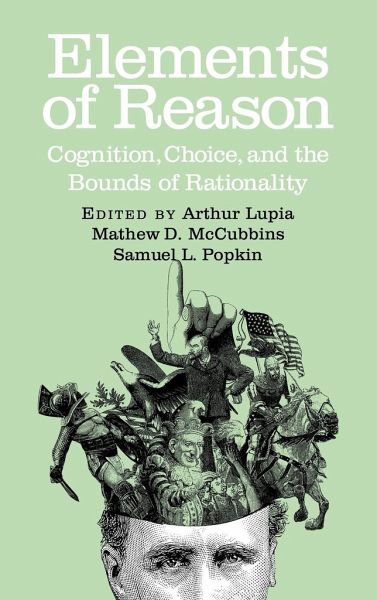
Elements of Reason
Cognition, Choice, and the Bounds of Rationality
Herausgeber: Lupia, Arthur; Popkin, Samuel L.; McCubbins, Mathew D.
Versandkostenfrei!
Versandfertig in 1-2 Wochen
83,99 €
inkl. MwSt.

PAYBACK Punkte
42 °P sammeln!
Many social scientists want to explain why people do what they do. A barrier to constructing such explanations used to be a lack of information on the relationship between cognition and choice. Now, recent advances in cognitive science, economics, political science, and psychology have clarified this relationship. In Elements of Reason, eighteen scholars from across the social sciences use these advances to uncover the cognitive foundations of social decision making. They answer tough questions about how people see and process information and provide new explanations of how basic human needs, ...
Many social scientists want to explain why people do what they do. A barrier to constructing such explanations used to be a lack of information on the relationship between cognition and choice. Now, recent advances in cognitive science, economics, political science, and psychology have clarified this relationship. In Elements of Reason, eighteen scholars from across the social sciences use these advances to uncover the cognitive foundations of social decision making. They answer tough questions about how people see and process information and provide new explanations of how basic human needs, the environment, and past experiences combine to affect human choices. Elements of Reason is written for a broad audience and should be read by anyone for whom 'Why do people do what they do?' is an important question. It is the rare book that transforms abstract debates about rationality and reason into empirically relevant explanations of how people choose.




